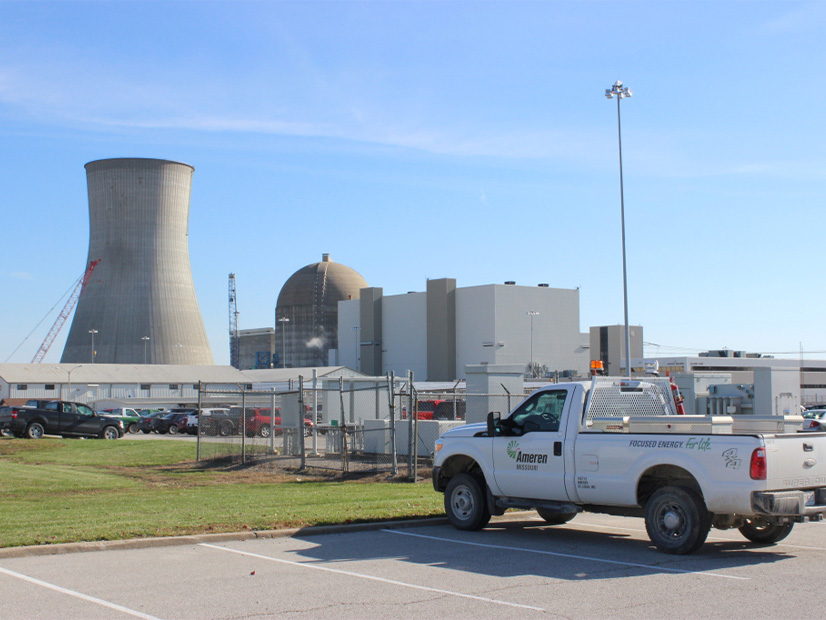FERC on Monday rejected the Coalition of MISO Transmission Customers’ (CMTC) proposal to allow some load to exit the MISO system penalty-free given the current Midwestern capacity shortfall.
The commission said CMTC failed to prove that MISO’s current tariff practices are unjust and unreasonable just because they don’t contemplate allowing load to bow out when the capacity auction fails to procure enough supply (EL22-60).
CMTC argued before FERC in May that MISO should allow its customers to decrement their load without being charged capacity payment obligations to lessen the possibility of summer blackouts. (See MISO Customers Ask for Penalty-free Load Reductions.)
The group said reductions in load would help following MISO’s 2022/23 Planning Resource Auction (PRA), which unveiled a 1.2-GW capacity shortage across MISO Midwest, triggering a $236.66/MW-day cost of new generation entry (CONE) clearing price for the entire subregion. (See MISO’s 2022/23 Capacity Auction Lays Bare Shortfalls in Midwest.)
CMTC contended that when a deficit occurs, MISO should allow some load to depart the system to avoid the steep capacity prices and bolster reliability by trimming demand. The group suggested that the RTO could allow load exits up to the 1.2-GW auction shortage and stop accepting any further load reductions once the supply and demand imbalance is resolved.
But FERC said that CONE clearing prices are an intentional feature of the auction — not a bug — beckoning new resources into the market.
“We are not convinced that the 2022/2023 auction results constitute a change in circumstances,” the commission wrote.
FERC said load-serving entities have ways of hedging against high auction prices, including entering bilateral supply contracts ahead of the auction, “supporting the development of new facilities” or selling demand response capabilities.
“The ability to hedge against high auction prices and the various off-ramps from the auction is further evidence that the existing tariff provides opportunities to avoid potentially high prices in the auction and is not unjust and unreasonable as complainants claim,” FERC said.
The commission also said it wasn’t convinced that CMTC’s proposed solution would be just and reasonable. It said giving auction participants the chance to “shed an otherwise binding commitment after an auction is conducted” would undermine the auction’s prices that signal for resource planning and investment.
In a separate concurring opinion, Commissioner James Danly repeated concerns about the flood of intermittent resources in MISO’s interconnection queue and its dwindling dispatchable generation. He called the RTO’s current market design “inadequate to the task of procuring sufficient capacity.”
However, he admitted that the 2022/23 PRA functioned as intentioned “regardless of poor decisions by market participants or the long-term consequences of systemic defects in MISO’s capacity construct.”
“Why observers of MISO would shriek and clutch their pearls when the price rises to CONE in the event of a capacity shortfall … is beyond me. Anyone who gets upset about prices rising in times of scarcity cannot truly be a proponent of competitive markets,” Danly said.
MISO itself argued that processing and then resettling “a multitude of load exit requests” would be burdensome and require compliance controls. It said it foresaw “complex computation” and “needless litigation” if FERC greenlit penalty-free departures.
The RTO said it would likely be forced to replicate the auction with new levels of load so it could establish updated demand forecasts, different systemwide and zonal reserve requirements, and adjusted zonal resource credits. It said CMTC was oversimplifying a solution.
MISO’s Independent Market Monitor said CMTC’s complaint was “fundamentally incompatible with MISO’s market design and tariff.”
The Coalition of Midwest Power Producers added that CMTC was essentially seeking retroactive ratemaking and said if FERC granted the complaint, it would have “eroded investor confidence in all regional transmission organization/independent system operator markets and would also represent a disruptive precedent that others could seek similar cost avoidance.”




